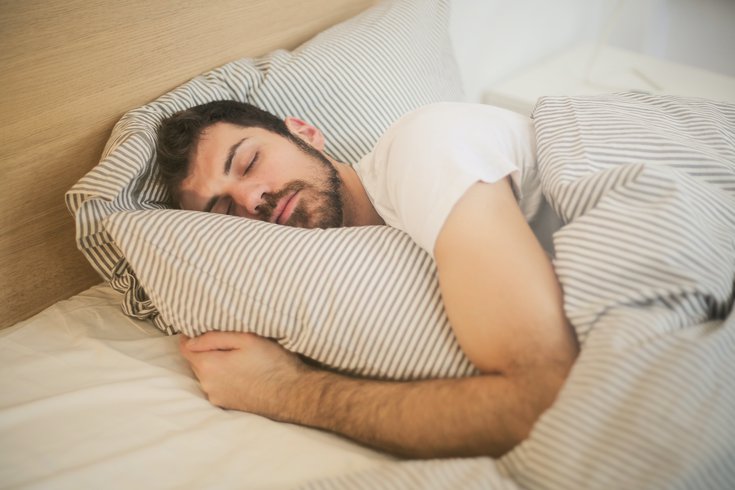
May 22, 2023
 Andrea Piacquadio/Pexels
Andrea Piacquadio/Pexels
It can be more difficult to fall asleep during the summer months due to hot weather and extended daylight. They throw off the body's internal temperature controls and the release of the sleep hormone melatonin.
Summertime brings sunny skies, a break from school and a wide variety of warm weather activities ... but the change in season also negatively impacts the nighttime routines of many people.
Temperature is intertwined with the ability to sleep, according to Philip Gehrman, a psychology professor at the University of Pennsylvania and a member of the Penn Sleep Center. Extremely warm temperatures can mess with comfort levels and sleep regulation, issues that become exacerbated during the long, hot nights of summer.
The sleep cycle is regulated by the body's circadian rhythm, which is based on the light-and-dark cycle of the sun and is controlled by the brain. The circadian rhythm takes cues from a number of environmental and personal factors, including temperature. Each person's core body temperature begins to drop about two hours before bedtime, coinciding with the release of the sleep hormone melatonin.
"What happens is that after our core body temperature peaks, and then starts to drop, that cooling of the core tends to make us feel sleepy," Gehrman told Penn Today in 2019. "This is why if you've ever sat in a hot tub or taken a hot bath, afterwards, people often feel sleepy when they get out. ... (Y)ou sit in that hot water, it raises your core temperature, then you get out and your core temperature rapidly drops, and it's the cooling of the core that tends to make us feel sleepy."
For this reason, the temperature of one's bedroom can affect a person's sleep quality. The ideal room temperature for sleep is about 65 degrees Fahrenheit, experts say. That can vary a bit from person to person, so most doctors recommend keeping the thermostat set between 60 to 68 degrees.
In the summer, though, hotter ambient temperatures prevent the body's temperature from falling as quickly to its ideal for sleeping. This makes it more difficult to sleep and can cause frequent awakenings during the night. And Daylight Savings Time allows the body to be exposed to sunlight later into the evening. This suppresses the production of the melatonin, the hormone that signals that it's time to sleep.
On top of environmental factors, the summer lifestyle — which for some may include vacationing as well as socializing, eating and drinking later into the night — can disrupt sleep patterns by delaying the body's circadian clock.
There are ways to combat summertime insomnia, though. Here are some tips from sleep experts for falling asleep on hot nights:
For people whose homes have air conditioning, lowering the thermostat to 65 degrees before sleeping can help signal to the body that it's time for bed, working in tandem with bodily temperature fluctuations.
Other ways to keep the room cooler include using a fan, opening windows, closing the blinds or curtains or controlling bedroom humidity with a dehumidifier. People also even can try sleeping downstairs, where temperatures generally are cooler.
Another cooling technique involves placing the pillowcase in the freezer in the evening and putting it on the pillow before getting into bed. Certain sheets and pillowcases made from natural fibers, like cotton or linen, offer better breathability and are therefore easier to keep cool. People who feel hot while sleeping should avoid mattresses made with thick foam.
Along with altering the bedroom environment, preparing your body to wind down for the night aids sleep on hot nights.
Taking a warm bath an hour or two before going to bed can encourage a natural cool-down effect. People are advised to avoid exercising too closely to bedtime, because it can spike body temperature.
The clothes that people choose to wear to bed also can affect their body temperatures. There are pajamas that regulate body temperature to reduce sweating. Keeping ice water and an ice pack within reach is also suggested.
Those who find themselves waking up sweaty every morning should consider visiting their doctors, as night sweats can sometimes be caused by medical conditions or medications.
Follow Franki & PhillyVoice on Twitter: @wordsbyfranki
| @thePhillyVoice
Like us on Facebook: PhillyVoice
Have a news tip? Let us know.